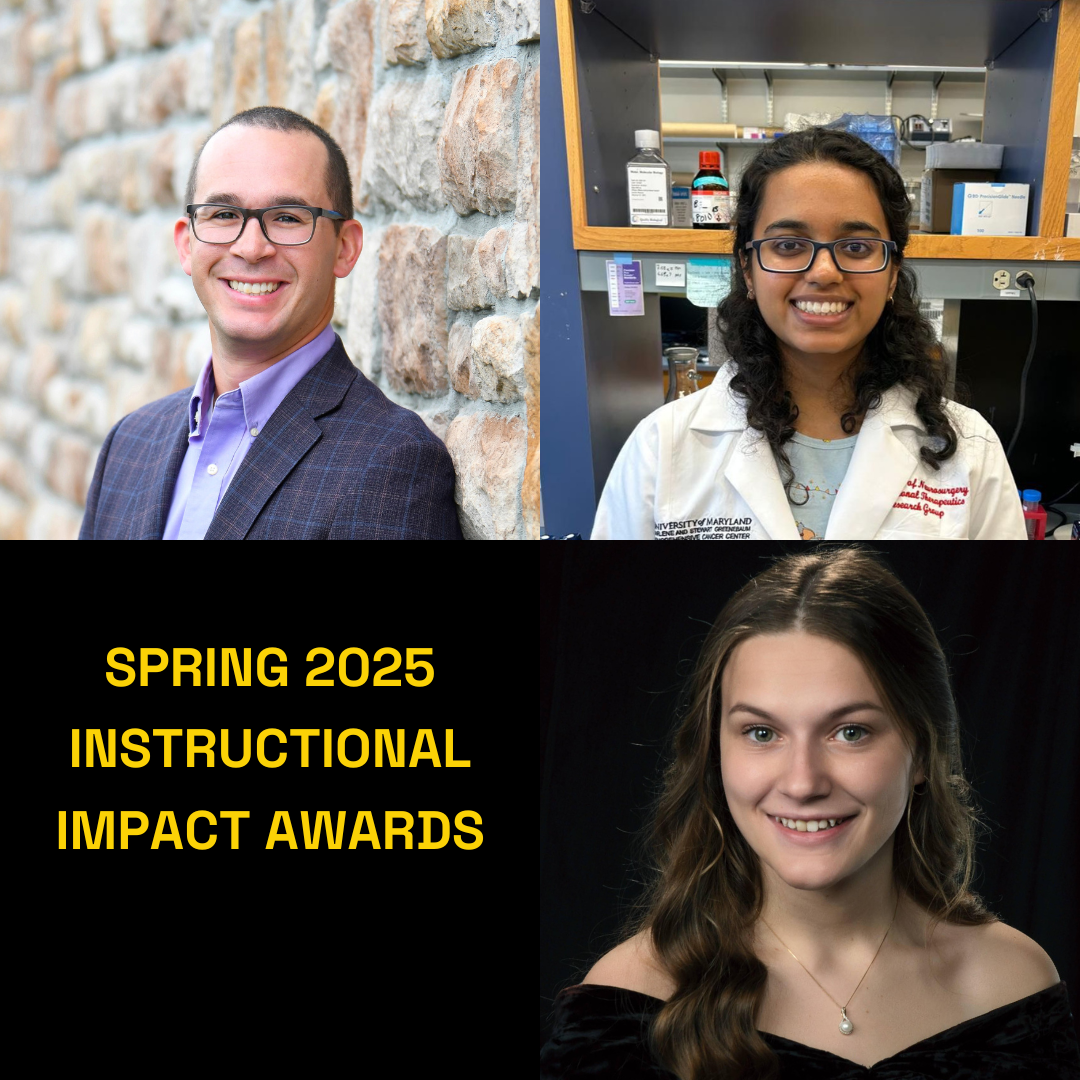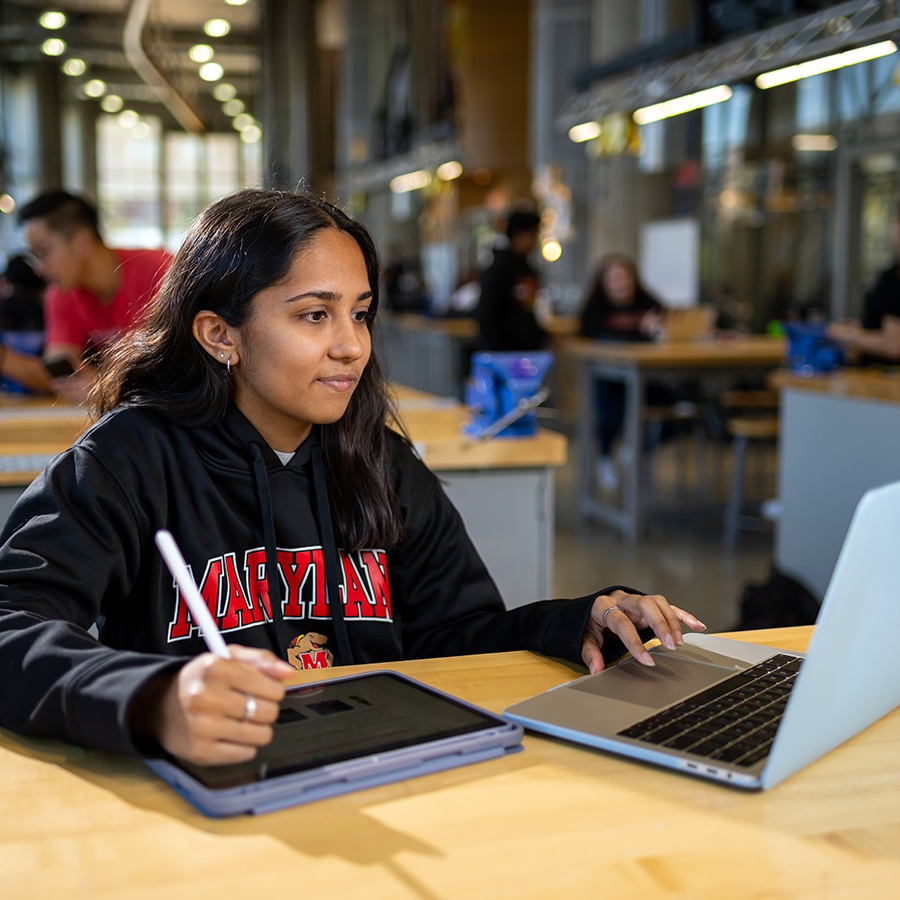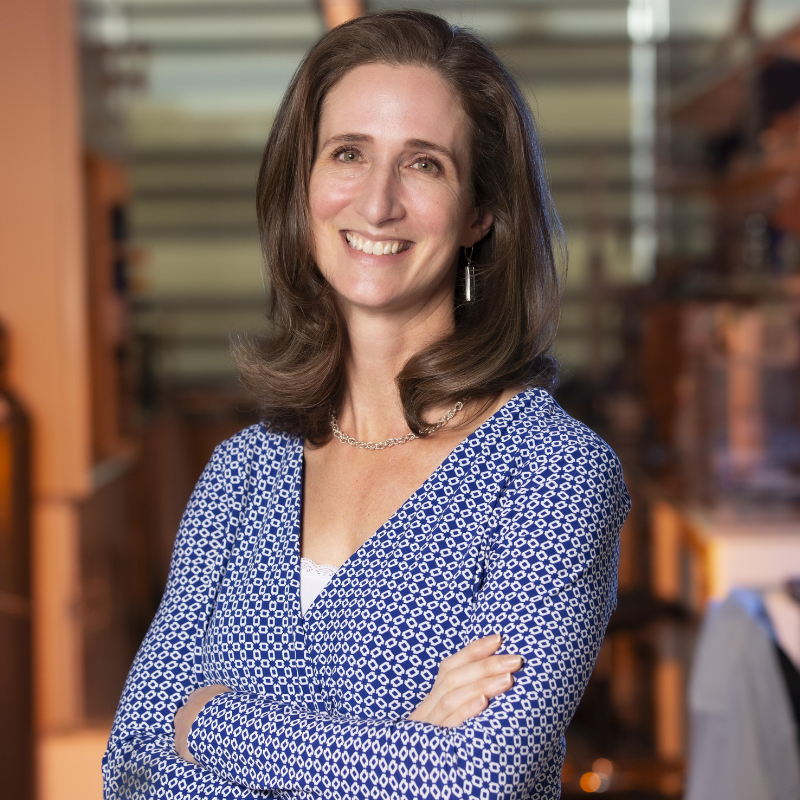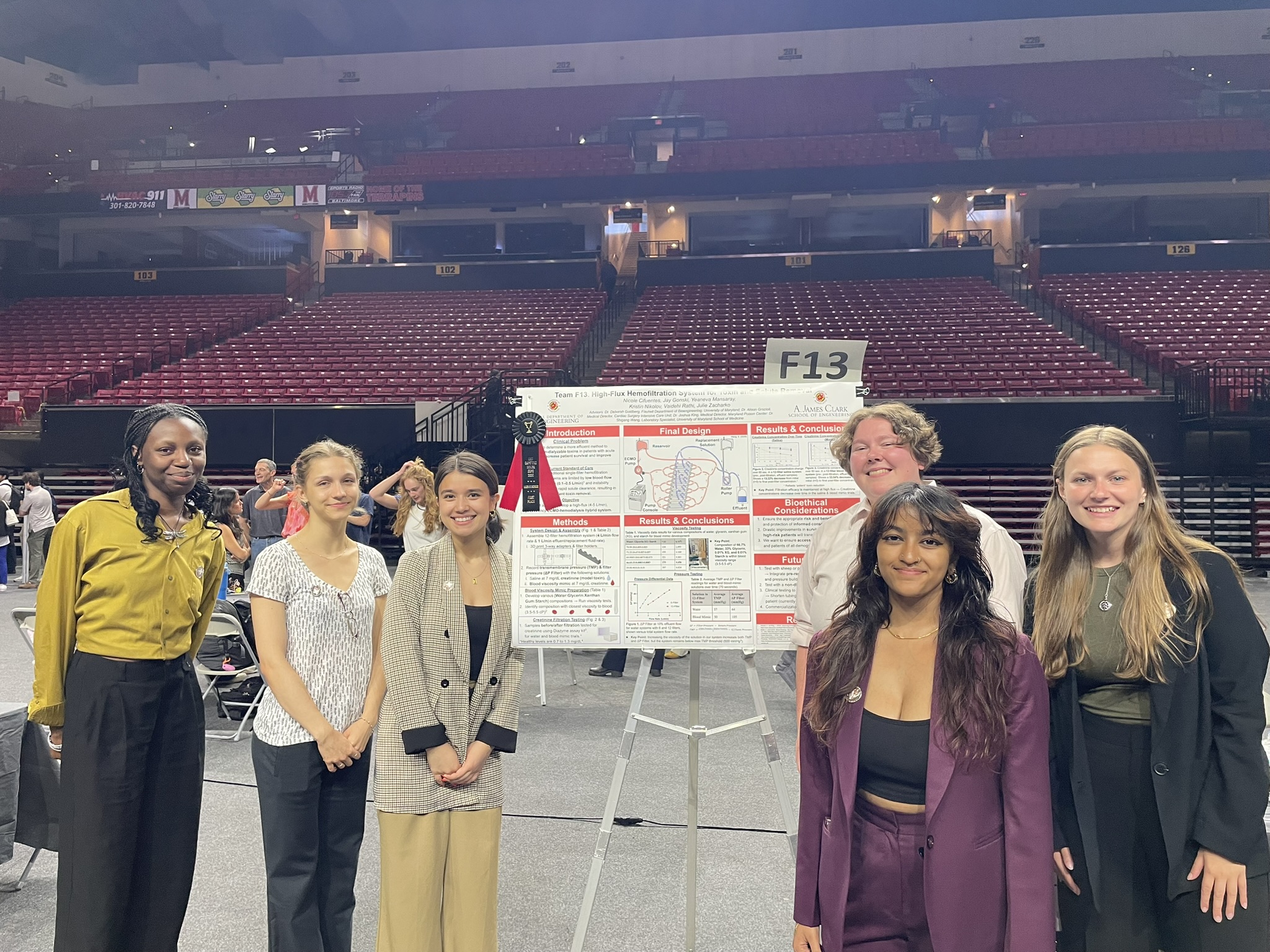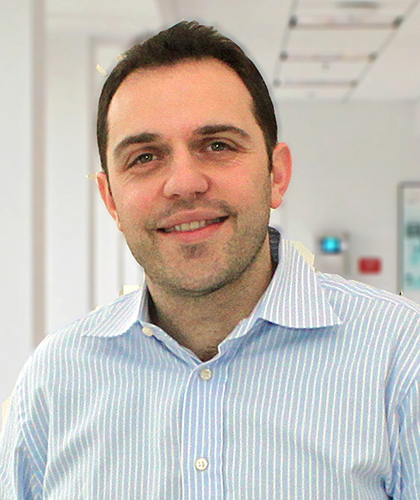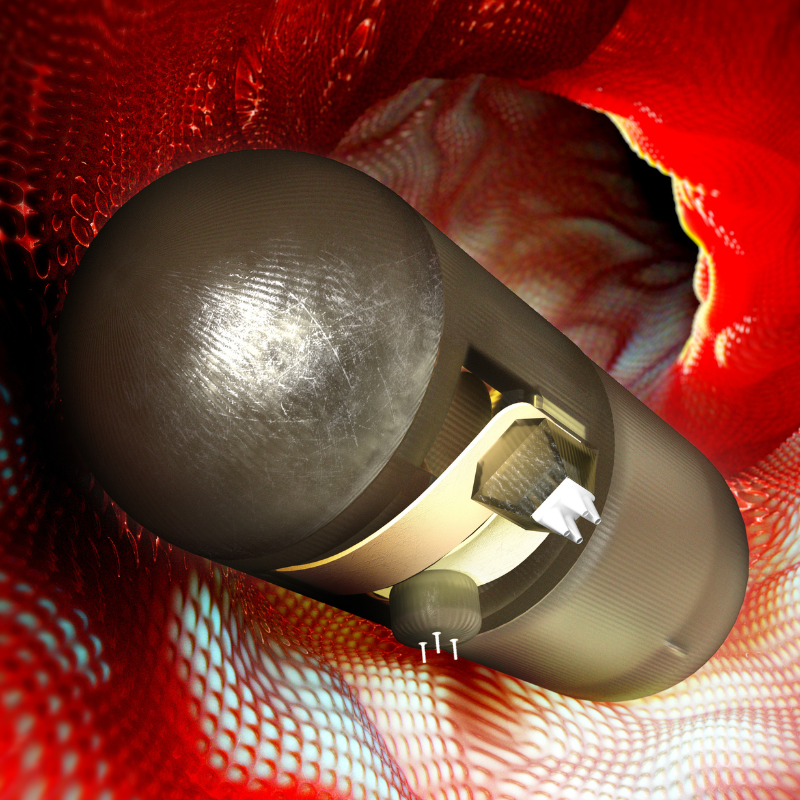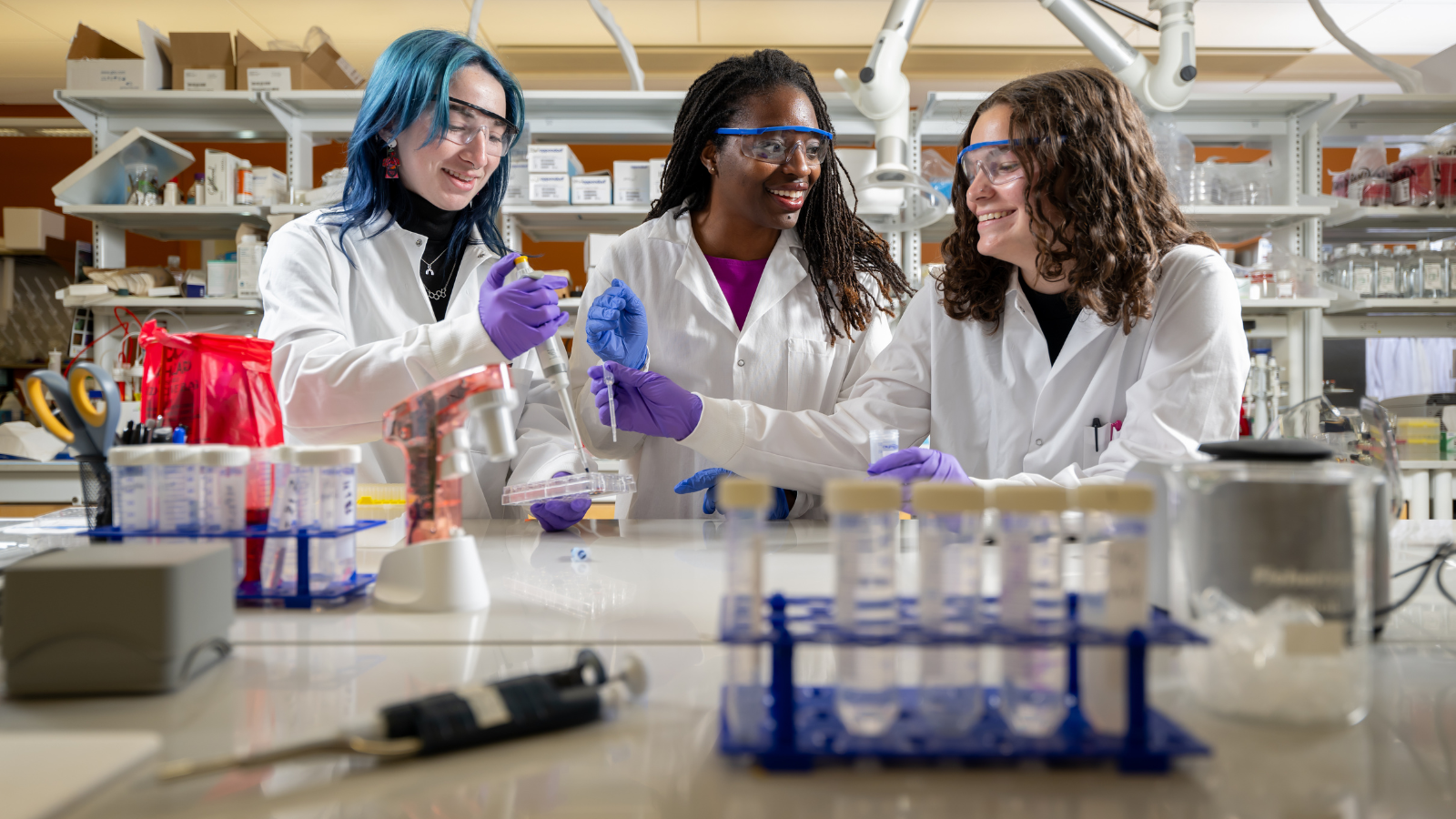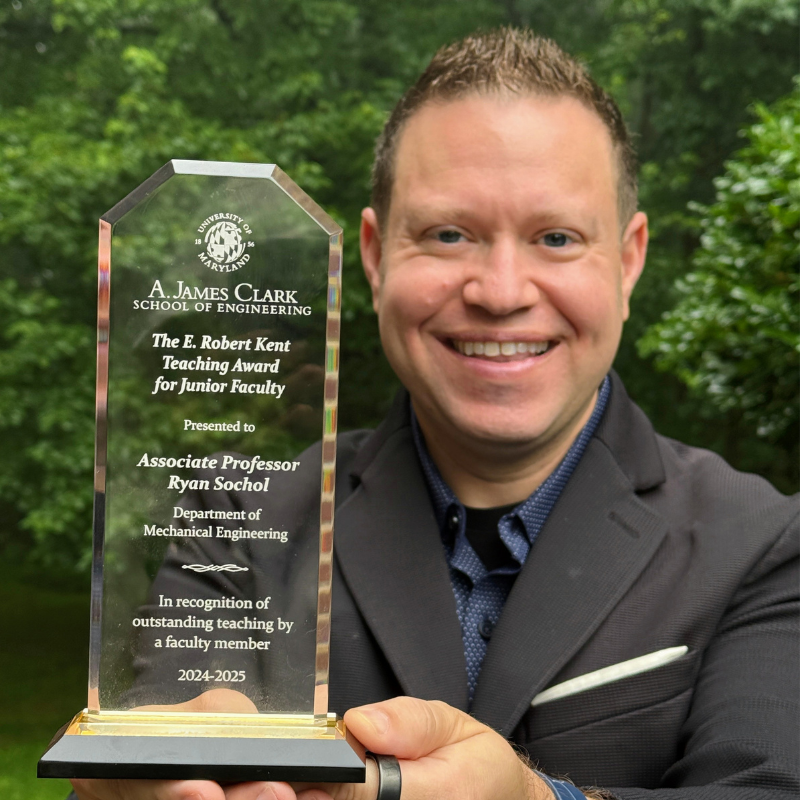News Story
Record Year for NSF Fellowships
Five Fischell Department of Bioengineering (BioE) graduate students have been awarded 2011 Graduate Research Fellowships from the National Science Foundation (NSF), and a sixth has received an Honorable Mention. Two BioE alumni have won a fellowship and honorable mention, respectively.
Current graduate students Gunja Dave and Rasa Ghafarrian, and incoming graduate students Rachel Manthe, Tony Melchiorri and Michael Wiederoder, have each received a Graduate Research Fellowship, while current graduate student Omar Ayyub has received an Honorable Mention. Alumnus Anthony Awojoodu (B.S. '08), who attends the University of Virginia, received a Graduate Research Fellowship; and alumna Jennifer Lei (B.S. '10), who attends Georgia Tech, received an Honorable Mention.
"This is a record for our program," says BioE graduate program director and Keystone Professor Peter Kofinas. "The fact that eight former and current bioengineering students have been recognized by this very prestigious NSF fellowship program is proof of the high-caliber bioengineering graduate and undergraduate programs at the University of Maryland. Although our graduate program is the newest in the Clark School, we are already competing for the same applicants with the top bioengineering and biomedical engineering graduate programs such as Johns Hopkins, MIT, and the University of Washington at Seattle, and we are able to win them over."
Dave, advised by Assistant Professor Sameer Shah, studies the mechanics of diffuse axonal injury, a severe type of traumatic brain injury that leads to cognitive dysfunction. Her research focuses on understanding the transport of mRNA, molecules that encode the proteins required for cell function, in both maturing and injured neurons (nerve cells). Enhanced understanding of the process could ultimately lead to enhanced therapeutic strategies for neurodegenerative diseases. "I not only feel blessed but above all more inspired to deliver results," she says of her award.
Ghafarrian, advised by Assistant Professor Silvia Muro, is developing a novel drug delivery system that uses targeted carriers capable of crossing the gastrointestinal epithelium. Perfection of the technique could pave the way for more drugs to be delivered orally. The carriers could also be used to orally deliver imaging agents, genetic material, and other molecules used in the diagnosis, monitoring, and treatment of disease. The system tied for first place in the University of Maryland's Office of Technology and Commercialization's Invention of the Year competition in the Life Sciences category.
Ayyub, advised by Professor Peter Kofinas, studies color changing polymer films as a biosensing platform. The sensor has been specifically fabricated to sense glucose, but further work could lead to pathogenic sensing. Reaching such goals can result in easy to use sensors for applications ranging from food safety to bioterrorism defense.
Each Graduate Research Fellowship consists of three years of support which may be used over a five-year period. For each year of support, the NSF provides a stipend of $30,000 to the fellow and a cost-of-education allowance of $10,500 to the degree-granting institution.
Honorable Mentions are granted to meritorious applicants who do not receive fellowship awards as an acknowledgement of significant national academic achievement. Recipients of Honorable Mentions are granted access to to TeraGrid, the NSF's open scientific discovery supercomputing infrastructure. TeraGrid provides 2.5 petaflops of computing capability, over 50 petabytes of online and archival data storage, and other online tools to researchers throughout the country.
Published April 20, 2011
